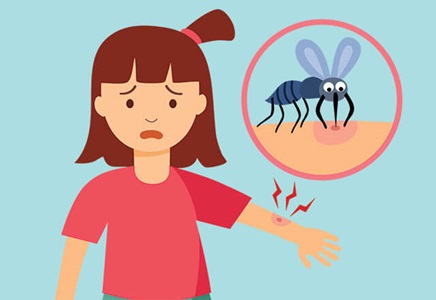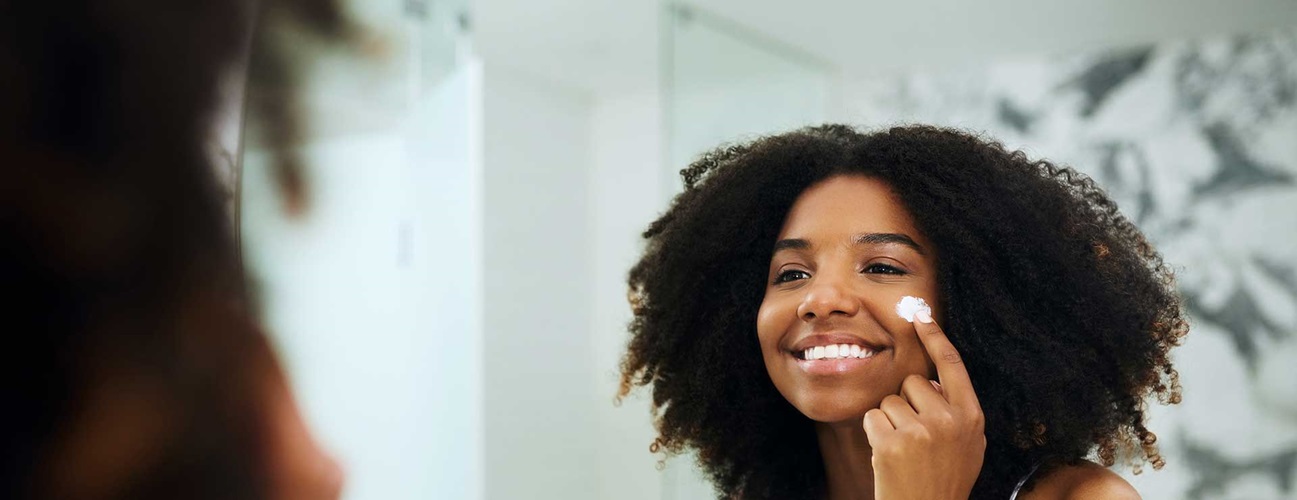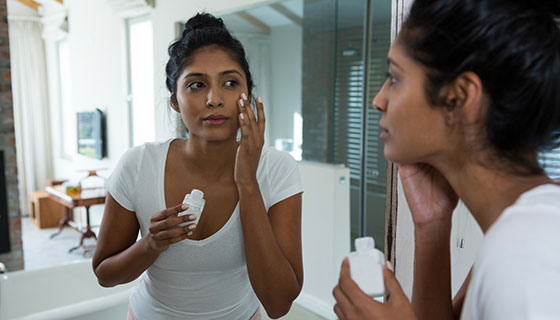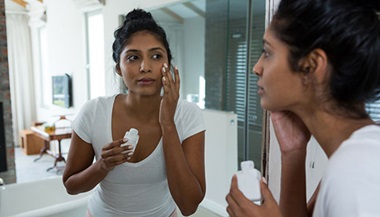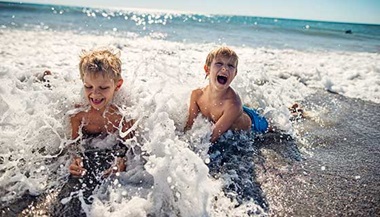Common Summer Skin Conditions: What You Should Know
When gardening, swimming, camping and enjoying outdoor sports and activities are part of your summertime plans, protecting your skin is essential. Here’s how to make sure insect bites, rashes, sunburn and other summer skin conditions don’t spoil the fun.
Sun Skin Damage
Practicing good sun safety is the priority when it comes to summer skin care. Even a few bad sunburns can raise your risk for skin cancer and premature wrinkling and aging.
A little effort can go a long way to protecting your skin:
- Use a good, broad-spectrum, water-resistant sunscreen on your face and other exposed areas, even on cloudy days.
- Apply generously, and don’t forget your lips and the rims of your ears, the back of your neck and the tops of your feet.
- Choose one with an SPF (sun protection factor) of at least 30.
- Reapply about every 2 hours and after swimming or sweating.
- Cover up with sun-protection clothing and always wear a hat and sunglasses.
- Stay inside or under cover during peak sunny hours.
Bug Bites
Insect bites and stings can leave your skin with painful welts and even spread disease.
Ticks can spread Lyme disease, and some are no bigger than a poppy seed. If you’ve been outside in woodsy, grassy areas where Lyme disease is being diagnosed, check yourself and your children for ticks afterward.
Wasps, bees, hornets and yellow jackets can inflict painful stings. If you or your loved ones have insect sting allergies, be sure to keep medications and antihistamines within easy reach in case someone gets stung.
Mosquitoes can make evening gatherings miserable, especially in humid summer weather. Likewise, biting flies are common in certain areas and can make hiking in the woods or relaxing at the beach a challenge.
- Use repellent to keep bugs off your skin.
- Moving air can help. When you spend time outside at dusk or nighttime, plug in a box fan or other type and keep it blowing to keep the biters at bay.
- Treat bites with anti-itch medication since scratching itchy bug bites can cause infection, break the skin and leave scars.
Lyme Disease | Chris’s Story
Chris Harris was infected with Lyme disease from a deer tick bite. He chose the Johns Hopkins Lyme Disease Research Center for treatment. Here, Chris shares his story of treatment and living with Lyme disease.
Rashes and Skin Irritations
Summer heat, poison ivy, swimming in certain water, perspiration and other factors can cause skin irritations and rashes.
Heat and Sweat
Hot summer air and sweat can cause ― or aggravate ― certain skin conditions.
Acne can worsen in the summer when sweat and face oils mix and clog hair follicles and oil glands. Blot your face frequently with a clean tissue or towel, and look for makeup and sunscreen products that are oil-free and designed not to clog pores (non-comedogenic).
Tinea is a common fungal infection of the skin that causes lighter or darker spots and itchy patches on the scalp, between the toes (athlete’s foot) or in the groin (jock itch). Though not caused by heat and humidity, summery weather can make symptoms worse. Your doctor can prescribe treatment.
Prickly heat shows up as tiny red bumps and is caused by sweat clogging your pores. Cooler air and cold compresses can provide relief.
Plants
Poison ivy, poison oak and poison sumac are abundant in the summer. If you run, hike or camp, you’re likely to encounter these leafy lurkers. Oils in these plants cause an allergic reaction that can be severe, with redness, swelling and blisters, along with an intense itch.
The best solution is avoidance ― learn what these plants look like, and stay away. If you are exposed, wash your hands and clothes thoroughly to remove as much of the oil as possible.
Contact your doctor or urgent care for medications if contact with poison ivy or its cousins causes:
- Severe allergy symptoms
- A rash over a large area of the body
- A rash affecting the eyes, face or genitals
Margarita burn is a common name for phytophotodermatitis — a mouthful of a name for a skin irritation caused by a combination of plant compounds and light. It happens when certain plants interact with the sun to cause a burn-like irritation on the skin. Lime juice is a common cause (hence the name), so if you’re squeezing limes into summertime drinks, wash your hands and arms (and anywhere else the juice gets on) before going out in the sun. Buttercups, carrots, bergamot oranges and others can also cause the problem.
Water-Related Rashes
Depending on where you swim or soak, tiny creepy crawlies or chemical treatments can irritate your skin. Be on the lookout for signs at local lakes, beaches or swimming holes warning for the presence of bacteria, parasites or other irritants.
Swimmer’s itch is also called cercarial dermatitis. It is caused by microscopic parasites that can become concentrated in ponds, lakes and even the ocean. After swimming, you may experience itching, tingling or burning sensations as the water dries on your skin. Pimple-like bumps, hives or welts can emerge. The best prevention is a brisk rub-down with a clean towel as soon as you get out of the water.
Sea lice are not lice at all. They are just-hatched and barely visible jellyfish or sea anemone larva common in the waters of eastern Florida or the Caribbean. Already equipped with stingers, the tiny creatures can get caught between swimmers’ skin and swimsuit, fins or gear and cause an itchy rash, which is also known as seabather’s eruption.
Chlorine rash can cause a burnlike skin irritation in people with a chlorine allergy when they take a dip in chlorine-treated pools, hot tubs or spas. Chlorine can also dry out the skin and aggravate existing skin problems.
General Summer Skin Care
Remember these tips to keep your skin healthier as the temperatures rise:
- Stay hydrated: Drinking plenty of water keeps your skin healthy and moisturized from the inside.
- Limit sun exposure.
- Shower, cool down and dry off when you’re hot and sweaty.
- Use a mild cleanser daily, and avoid heavy makeup.
Consult your dermatologist for any skin conditions that concern you.
The Danger of Insect Stings
